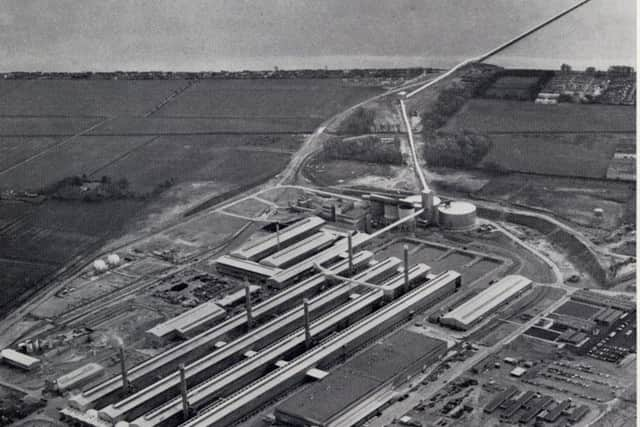Aluminium plant changed face of Highland community forever
Let us know what you think and join the conversation at the bottom of this article.
The commencement of operations at Invergordon aluminium smelter on May 25, 1971 sparked a population influx of epic proportions in the Easter Ross area.
Over the next decade the plant would coax thousands of men and their families to up sticks from the Central Belt, northern England and elsewhere, and, by and large, these people would stay put.
Advertisement
Hide AdAdvertisement
Hide AdThe number of residents inhabiting the tiny township of Alness grew exponentially, with several new housing estates springing up to accommodate the incoming workers.
But the sudden closure of the manufacturing hub during the Christmas of 1981 would bring misery and devastation on a level seldom experienced in this region since the dark days of the Highland Clearances.
Originally from Kilsyth, Willie Bauld the plant's former electrical engineer, moved up to Invergordon with his young family shortly after the smelter opened and, as fate would have it, would be the man to shut off the power when it closed.


Speaking to The Scotsman, Mr Bauld, 75, recalls the immediate impact that the sudden influx of workers had on the small towns and villages surrounding the plant.
He said: "The local supply of labour to operate the plant was not available, so most came from far and wide.
"The townships around Invergordon grew quite considerably, Alness had been tiny, but soon there 10,000 living there.
"We were welcomed into the area with ease, and my wife in particular thoroughly enjoyed moving there.
"All my family live here, and all stayed put after the plant shut down.”
Advertisement
Hide AdAdvertisement
Hide AdInvergordon ran at a deficit in its latter days, and Mr Bauld says the high cost of generating electricity was a major factor in the plant’s demise.
The aluminium manufacturer would be yet another victim of the rampant deindustrialisation policies then being pursued by Margaret Thatcher’s government.
The closure was a massive blow to the Easter Ross economy which was blighted by high unemployment for years afterwards.
"All of a sudden, 1,200 men were put out of work,” says Mr Bauld.
“I had direct instructions to go straight to the substation and switch off the power immediately. There was no choice in the matter for me.
"It really was a horrendous day, and the impact on the wider community was severe.”
In the 40 years since Invergordon smelter’s closure, there has been a renewal in interest in the site and efforts to collate the memories of those who either worked at or had a direct connection to the plant in its heyday.
Staff at Alness Heritage Centre have been busy over the past couple of years collecting reminiscences from former plant workers, however, this project has been delayed due to the pandemic.
Advertisement
Hide AdAdvertisement
Hide AdMr Bauld says it is important that knowledge of the smelter’s existence is passed down the generations.
He added: “We’re at the stage now where I’ve lost a lot of friends who worked with me, many my age, some even younger.
"The knowledge of the plant and the impact it had on the community is disappearing, because we’re disappearing.
"Only the other day, my granddaughter said, ‘granny and grandpa, had you not come up here, then I’d probably be applying for Glasgow University rather than Aberdeen.
"So many of the current generation were born and brought up here as a result of us relocating all those years ago.”
A message from the Editor:
Thank you for reading this article. We're more reliant on your support than ever as the shift in consumer habits brought about by coronavirus impacts our advertisers.
If you haven't already, please consider supporting our trusted, fact-checked journalism by taking out a digital subscription at https://www.scotsman.com/subscriptions.
Comments
Want to join the conversation? Please or to comment on this article.
